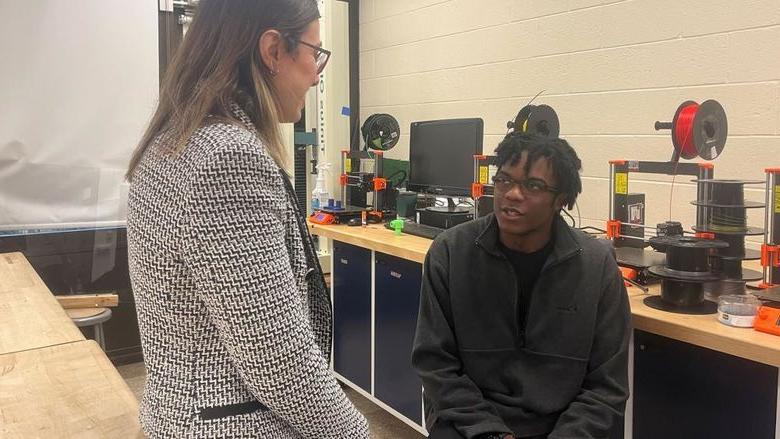Why ABET Accreditation Matters
ABET accreditation is proof that a collegiate program has met standards essential to produce graduates ready to enter the critical fields of STEM education. Graduates from an ABET-accredited program have a solid educational foundation and are capable of leading the way in innovation, emerging technologies, and in anticipating the welfare and safety needs of the public.
Your degree is a significant achievement and perhaps the largest investment you will make toward your future. The quality of education you receive makes a big difference in your career success. ABET accreditation:
- Verifies that your educational experience meets the global standard for technical education in your profession.
- Enhances your employment opportunities—multinational corporations require graduation from an accredited program.
- Supports your entry to a technical profession through licensure, registration, and certification—all of which often require graduation from an ABET-accredited program as a minimum qualification.
- Establishes your eligibility for many federal student loans, grants, and/or scholarships.
- Paves the way for you to work globally, because ABET accreditation is recognized worldwide through international agreements, and many other countries’ national accrediting systems are based on the ABET model.
Many US states and territories require professional licensure/certification to be employed. If you plan to pursue employment in a licensed profession after completing this program, please visit the Professional Licensure/Certification Disclosures by State interactive map.
The Bachelor of Science in Engineering at Penn State Abington, Penn State Brandywine, Penn State DuBois, and Penn State Great Valley is accredited by the Engineering Accreditation Commission of ABET, http://www.abet.org, under the commission’s General Criteria and Program Criteria for Engineering, General Engineering, Engineering Physics, Engineering Science, and Similarly Named Engineering Programs.






